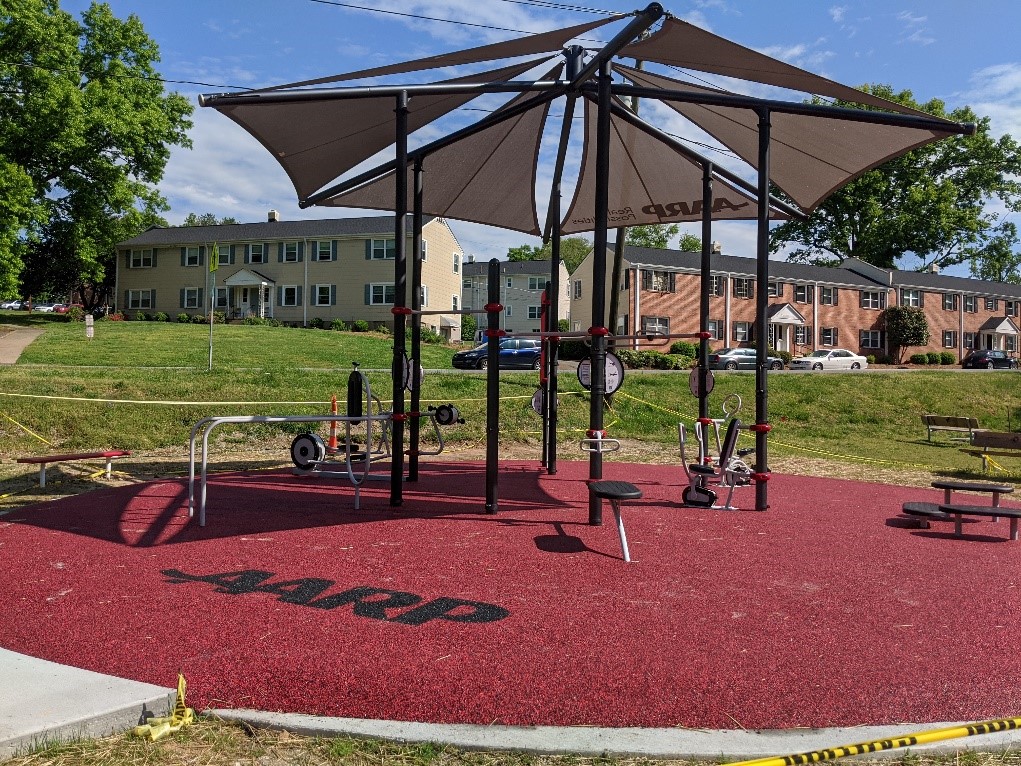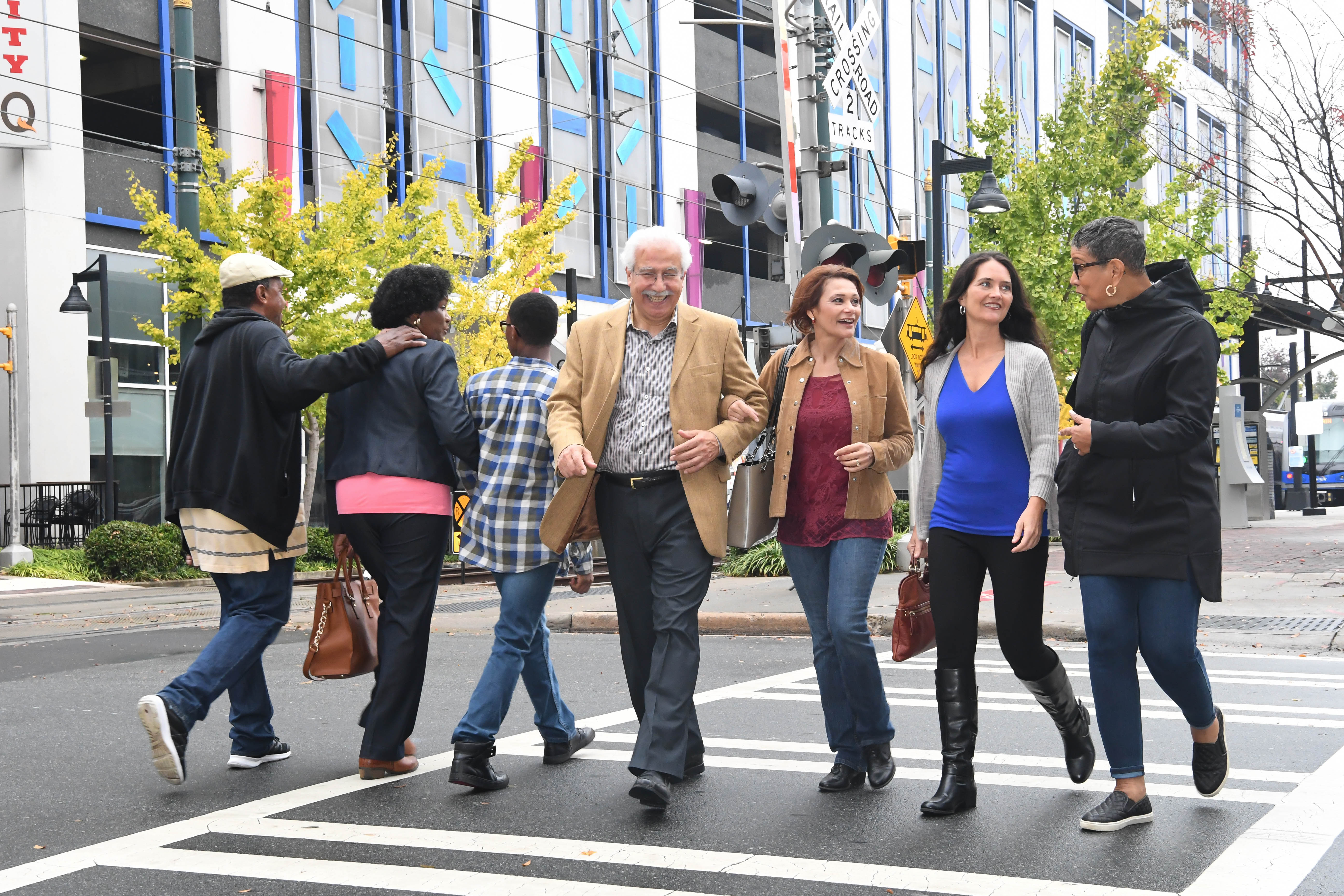AARP Hearing Center
With the help and encouragement of the AARP Network of Age-Friendly States and Communities, areas across North Carolina are working on “age-friendly” improvements that benefit residents of all ages. Over 3 million North Carolinians reside in areas that are part of the AARP Network of Age Friendly Communities.
Explore what “age-friendly” communities mean by watching this video:
This month, AARP will be announcing the winners of the 2021 AARP Community Challenge Grants that provide funds for “quick action” improvements that help communities become more “age-friendly.”
In North Carolina, large and small projects are well underway that will help people access transportation, safely walk and bike, make better use of green and open spaces, socially engage, get fit and access healthy food and health care.
AARP North Carolina Manager of Livable Communities Lisa Riegel explains, “The formula for what makes a community livable isn't particularly complex. For the most part, the features and needs are simple. For example, living in a place that requires a car for every errand or outing can be a difficult place to live if you don't have an automobile or can't drive.
Living in a place without access to outdoor spaces, good schools and healthy food isn't very livable, especially for young families. Living in a community that isn't safe, or offers few activities, can be isolating for people regardless of age. That is why it is so rewarding to see the momentum across North Carolina as civic leaders, volunteers and others work on important improvements.”
At the end of 2019, AARP brought together those in North Carolina who have a strong interest in projects related to improving housing, transportation, walkability, health care, and social engagement. They shared ideas and best practices that have led to even more progress in both urban and rural communities.
In 2020 and throughout the pandemic, AARP hosted regular information sessions where AARP members had an opportunity to meet with leaders virtually to look at topics such as accessory dwelling units, breaking social isolation, staying fit during the pandemic and more. (Learn more about these events, by searching “Livable Communities” on this website).

Some recent developments sparked by the Age-Friendly Network include a new AARP Fit Lot, now open to residents and visitors to Winston-Salem, improvements to parks, trails and open spaces, traffic calming demonstrations, but most importantly, thoughtfully planning for the future with cities and counties working with AARP to develop master aging plans.
What is good for older adults, is also good for Main Street merchants and local economies. Winston-Salem Mayor Allen Joines explains, “Providing fitness opportunities for older adults through the AARP FitLot is so important to us. We have a very active Age-Friendly Forsyth that I am working with to make sure our city is more age-friendly. The AARP FitLot will certainly help us as we continue to try to attract people to move to this city.”

Critical to making improvements, has been the work of AARP volunteers. From working with city planners and the Department of Transportation to survey pedestrian intersections to make sure older walkers had enough time to cross the street safely, to making temporary changes to sidewalks and crosswalks making our streets safer for all users, age-friendly developments have been sparked by volunteers.
Another way changes are being made, is through AARP Community Challenge grants. Recipients have been working to make either permanent physical improvements in the community, temporary demonstrations that lead to long-term change and are building new, or are planning innovative programming and services.
For example, to help push back against social isolation, a grant from AARP helped expand Bynum, NC’s, online programming that provides weekly music and storytelling that entertains current and former residents, many of which have become increasingly isolated during the pandemic.
AARP grant funding helped improve downtown Williamston by adding a centrally located community green space on Main Street where older residents and all individuals can socialize, learn about healthy food options, and develop new skills by attending programs throughout the year.
In Charlotte, to help combat social isolation and other negative effects of the lack of wi-fi access, an AARP Grant was awarded to the city's North End Community Coalition (NECC) for its hot spot and device lending program. With this program, community residents can borrow loaner devices and have access to wi-fi for up to three weeks at a time. The Coalition will also provide instructions on using the device and setting up basic email accounts if necessary.
Lara Cole, AARP Associate State Director in Charlotte points out that as important as the individual projects like the laptop loaning, is planning ahead. In July, Mecklenburg County released its first “master aging plan.” This plan will help guide the projects and priorities to help people in the county meet important physical and emotional needs.
Mecklenburg County joins several other cities and counties (Archdale, Buncombe County: Durham, Durham County, Forsyth County, Lenoir County, Matthews, Mount Airy, Orange County, Wake County) that already these plans in place.
To help spark continued momentum, AARP will provide Community Challenge Grant money to seven projects to be named in August. Riegel said, this year AARP is excited to provide some support not only for projects related to the domains of livable communities, but for those that are helping in the COVID recovery as well.
To learn more about “Age-Friendly” communities, visit www.aarp.org/livable































































